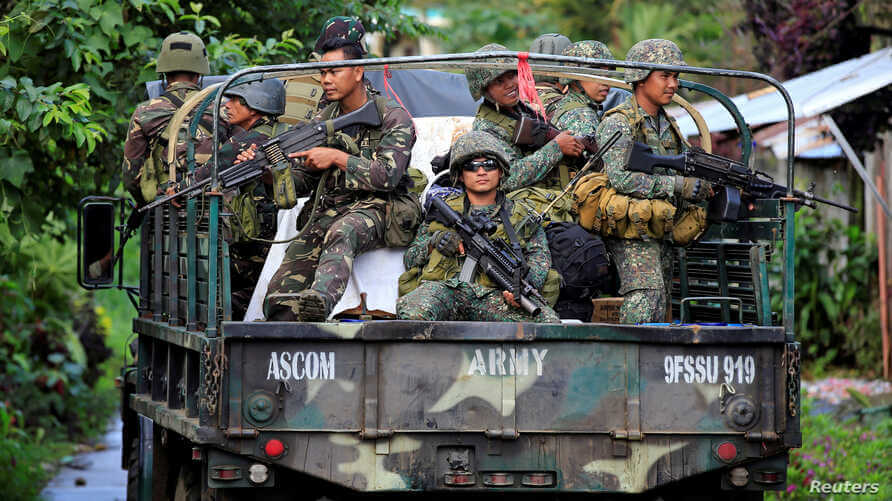The Philippine Army has received heavy flak from human rights groups for posing for a now-deleted photo with the body of a suspected communist rebel fighter, Jervilyn Cullamat. The picture was taken during a shootout between rebel fighters and government forces on November 28 in a village in Surigao del Sur, a province in the southern island of Mindanao.
In the image, soldiers can be seen posing with the remains of the armed female combatant, who was also the daughter of Eufemia Cullamat, a member of the Congress from the Bayan Muna party. Cullamat condemned the act as being disrespectful to her family and expressed that her daughter, who was a medic for the Army Special Forces, was “not a trophy to be paraded for military propaganda”. The Cullamat family belongs to the Manobo ethnic minority group, which has also been fighting for land rights in Mindanao.
Human rights groups have joined the family in condemning the war crime. The Commission on Human Rights (CHR) Caraga Regional Office has already launched a probe into the case. Human Rights Watch’s (HRW) deputy Asia director Phil Robertson said, “Committing outrages upon personal dignity is a war crime under the Rome Statute as it applies to dead persons under the ‘Elements of Crimes’ of the International Criminal Court.”
The Philippines government also joined the groups in condemning the action. Defence secretary Delfin Lorenzana said on Wednesday, “I don’t approve of that action. They (soldiers) shouldn’t have done that.” The military denied the accusations of desecrating Cullamat’s body, and justified their actions saying that the photos were taken simply to serve as “substantial evidence” of a “legitimate encounter.”
Mindanao and the surrounding southern islands have been rife with violence, given the rampant presence of various insurgent groups, including communist rebels and as well as Islamic insurgents. The Communist Party of the Philippines (CPP) and its New People’s Army (NPA) began an armed struggle against the government in 1968. The combat has lasted over 50 years and killed thousands of civilians and combatants. In response, President Rodrigo Duterte has launched large-scale military operations on the islands, including a five-month siege in 2017 when 1,200 people died. However, while the government momentarily regained control of these areas, the number of foreign fighters and militants only seems to multiply. Indeed, repeated counter-insurgency operations have fuelled the growth of splinter and independent terror groups.
Philippine Army Accused of War Crime
The Philippine Army received flak from human rights groups for posting a picture with the corpse of a suspected communist rebel fighter.
December 4, 2020

SOURCE: VOICE OF AMERICA, 2017
